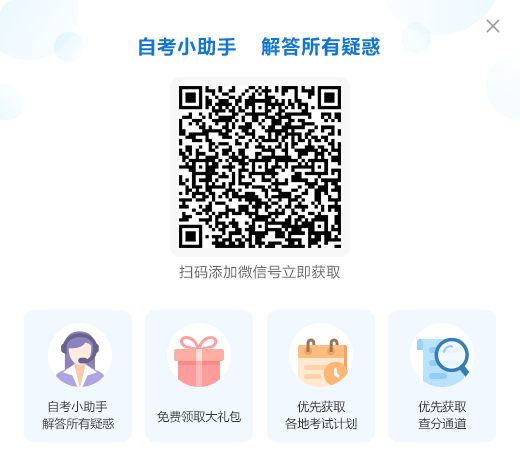| 第 1 页:第一部分 |
| 第 2 页:第二部分 |
| 第 3 页:第三部分 |
| 第 5 页:第4、5、6、7部分 |
Passage Three
Questions 31 to 35 are based on the following passage.
Since the beginning of the Internet era,it has been widely accepted that when you join an online company,whatever data you put into it belongs to you.
That means you can sign up for one kind of email,import your contacts into that system,and if you later decide to switch to some other email service,you can export all your contacts from the first service into the new one.You can use Microsoft's Hotmail,then move to Yahoo Mail,then to Google's Gmail.Or you can have accounts on three services and keep all your contacts in each one.
That' the way things were - until Facebook appeared. Facebook took a different approach Until recently, everything you put into Facebook could not be exported anywhere. In effect, you didn't own your data. Facebook did.
Of course this is rubbish.The reality is that Facebook wants to make it difficult,if not impossible,for you to leave.
Now that policy has sparked a fight between Google and Facebook.Google is angry because its users can,and often do,export their Gmail contact information into Facebook.But those people can't bring Facebook information back into Gmail.
Earlier this month Google declared it would block exports of its data to Facebook.In a shameless move,Facebook broke through Google's roadblock so its users could keep pulling data from Google.
Google said it was "disappointed'' with Facebook's behavior.It also created a warning screen to tell Gmail users that if they export their information to Facebook they won't get it back.
Basically,Facebook's position with major IT companies is this:if you want access to all the information we've collected,strike a deal with us.Microsoft and Yahoo have done that,and now,like magic,they can export Facebook contact information into their systems,while Google still can't.
Remember the early days of the Net,when everything was going to be open and flee? That was great until people realized that their user data could be turned into gold.Now there are billions involved,and nobody is playing nice anymore.
31.Before Facebook appeared,people_______.
A.had a limited number of accounts
B.enjoyed a completely free service
C.had limited access to their contacts
D.enjoyed full ownership of their data
32.It seems that Facebook's approach makes the writer rather_______.
A.annoyed
B.assured
C.puzzled
D.pleased
33.Google is angry with Facebook due to the latter's refusal to_______.
A.let its users use Gmail
B.offer technical support
C.share user information
D.protect user information
34.The passage indicates that Microsoft and Yahoo have_______.
A.agreed to side with Google
B.accepted Facebook's terms
C.taken their own approaches
D.struck a deal with each other
35.According to the writer, the current state of the Net is_______.
A.misleading
B.frustrating
C.promising
D.satisfying
·2018年4月自考《外国文学作品选》试卷真题 (2018-4-26 14:32:47)
·2018年4月自考《语言学概论》真题答案及解析 (2018-4-25 10:00:34)
·2018年4月自学考试《语言学概论》试卷真题 (2018-4-25 15:51:18)
·2018年4月自学考试《马原》完整真题答案 (2018-4-20 11:31:22)
·2018年4月自考Java语言程序设计真题及答案汇总 (2018-4-14 14:36:36)
·免费真题 ·模考试题


实用文档 | 入党资料 | 入党申请书 | 入党志愿书 | 个人自传 | 转正申请书 | 思想汇报 | 个人简历 | 简历模板 | 简历封面 | 工作计划 | 工作总结 | 自我评测
个性评测 | 社交评测 | 事业评测 | 运势评测 | 报告 | 实习报告 | 工作总结 | 社会实践 | 心得体会 | 述职报告 | 调查报告 | 辞职报告
法律文书 | 合同范本 | 演讲范文 | 更多>>
英语学习 | 听力口语 | 阅读写作 | 翻译文化 | 趣味英语 | 学习方法 | 英文经典歌曲 | 每日课堂 | 空中英语 | 少儿英语 | 影视英语 | 英文歌曲 | 更多>>
作文大全 | 作文 | 小学 | 初中 | 高中 | 话题作文 | 考研 | 四六级 趣味作文 | 体裁作文 | 记叙文 | 议论文 说明文 | 应用文 | 读后感 | 作文素材 | 名言警句
优美段落 | 哲理故事 | 诗词赏析 | 成语知识 | 技巧 | 写作指导 | 作文点评 | 佳文赏析 | 写作基础 | 话题演练 | 作文教学 | 更多>>

 下载
下载







